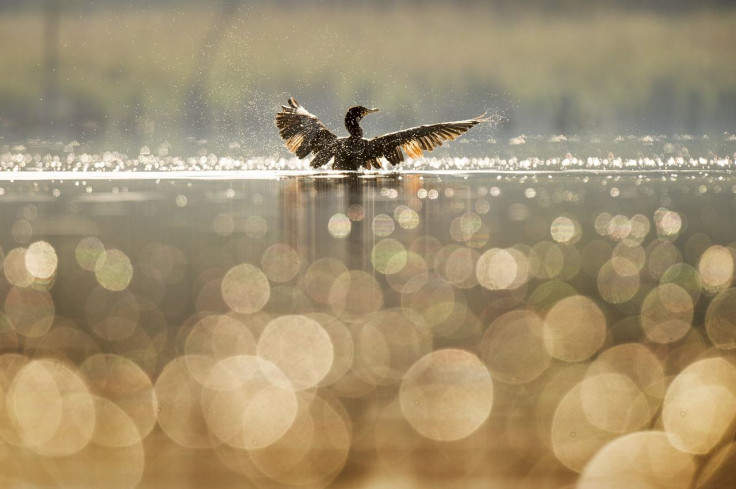Meet The Australian Musk Duck That Can Swear Like Humans
KEY POINTS
- Ripper, an Australian musk duck, sounded like he was swearing in recordings
- Another musk duck also seemed to imitate the quacks of another duck species
- These instances show the species' "unexpected" ability for vocal learning
Have you ever heard a duck talk? Recordings of musk ducks show an "impressive" ability and one of them even swore like a human.
When it comes to animals that can "talk," many may quickly think of parrots and the few animals that can imitate human sounds. In a new study, published in the Philosophical Transactions of the Royal Society B, a pair of researchers provided evidence of yet another species that is capable of vocal learning -- the Australian musk duck.
The musk duck is an endemic Australian species, the researchers wrote. They are gray in color, with the males having a large, black lobe below their bills and they get their name from the musky smell that's around during the breeding season, reported Science Alert.
According to the researchers, vocal production learning or the means of acquiring vocalizations by learning, has evolved in several animal groups.
"Strong evidence for the presence of vocal learning are imitations of human speech or mechanical sounds, as observed in several songbird and parrot species, in particular when held or raised in captivity," the researchers wrote. "The only reports of imitation of speech and human-made sounds outside songbirds and parrots, and hence strong indication of the presence of vocal learning, concern a hand-reared captive Australian musk duck (Biziura lobata), 'Ripper,' imitating a slamming door and producing some speech-like sounds."
Ripper is a male musk duck that was raised from a fresh egg from East Gippsland, Victoria, Australia, in 1983 and was reared in captivity at Tidbinbilla Nature Reserve some 50 kilometers Southwest of Canberra.
In recordings of Ripper's vocalizations using a Sony Walkman Recorder and Sennheiser MKH 816 microphone on July 19 and 26, 1987, one can hear his vocalizations sound like he's saying, "You bloody fool," which is apparently a catchphrase of one of his caretakers.
"He called repeatedly then dashed about on the small patch of water within the pen splashing water everywhere," the researchers wrote. "The vocalization is most likely an imitation of a phrase he heard repeatedly from his caretaker, but it is not known at which age he was exposed to it."
Recordings from another male duck in 2000 also reveal "whistle-kick vocalization" with the first part of his vocalization resembling Ripper's slamming door sounds. This particular duck was also exposed to Ripper, which "may have affected this part of the sound," the researchers noted.
This duck also imitated the quacks of a Pacific black duck. According to the researchers, it was kept at a pond where black ducks were present, though it's unclear if it had any interactions with them and at what age.
"The vocal development in musk ducks thus shows clear parallels to the vocal learning of, in particular, songbirds and parrots," the researchers wrote.
Such an ability had actually been observed before, the researchers said. However, the sounds were "never analyzed" and eventually ended up being unnoticed.
This now adds Australian musk ducks to the "limited number" of animal groups that can acquire vocalizations by learning them from others with their "unexpected and impressive" ability.
"The observations support the hypothesis that vocal learning in birds evolved in several groups independently rather than evolving once with several losses," they added.
That said, there are still many questions that need to be answered.
"The findings presented here call for a more extensive and systematic study of this and related, or other, species belonging to this clade and demonstrate the need and usefulness for a much wider and more systematic search for examples of vocal learning among avian taxa to provide more extensive material for comparative studies of vocal learning," the researchers wrote.

© Copyright IBTimes 2025. All rights reserved.






















